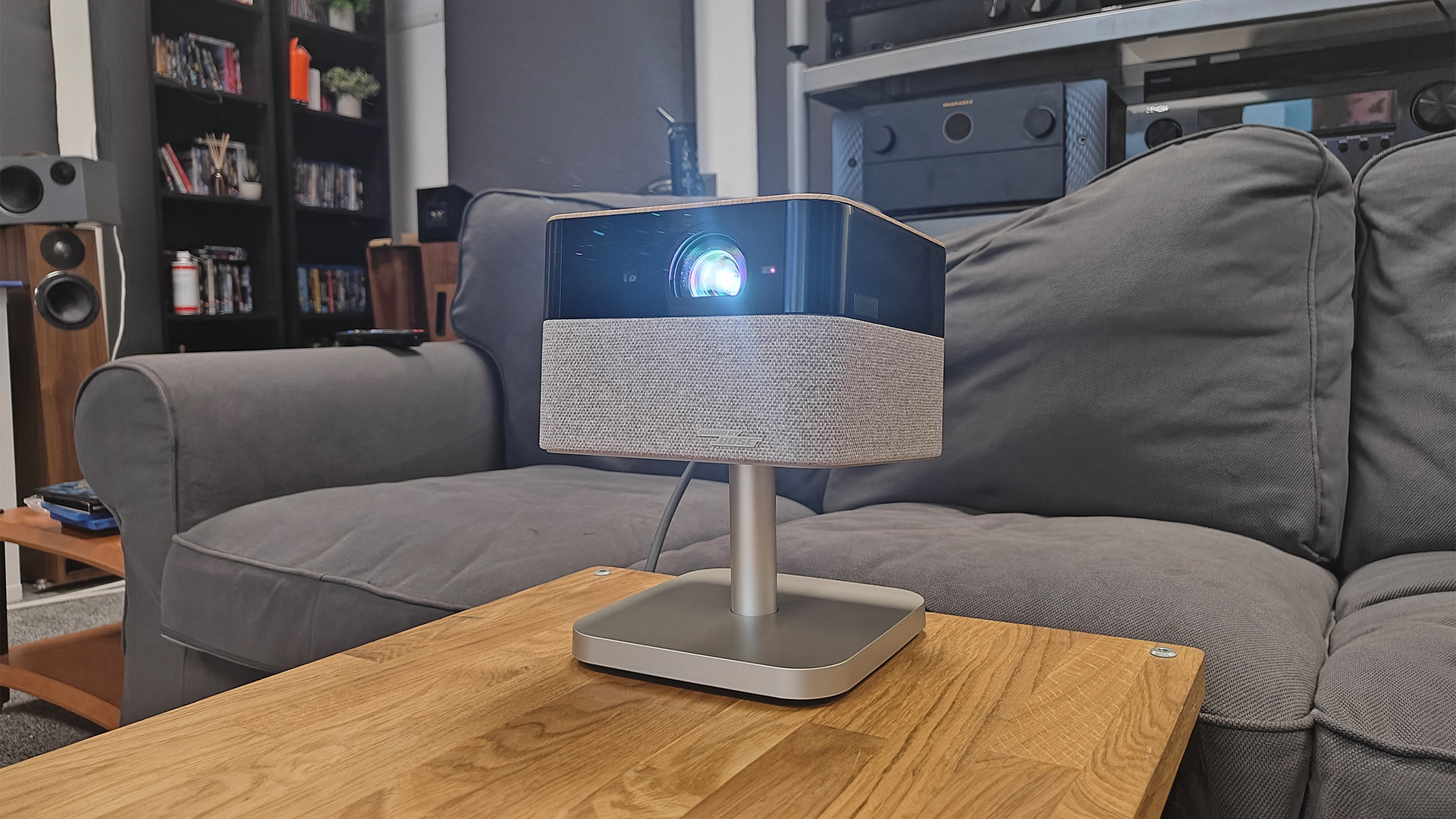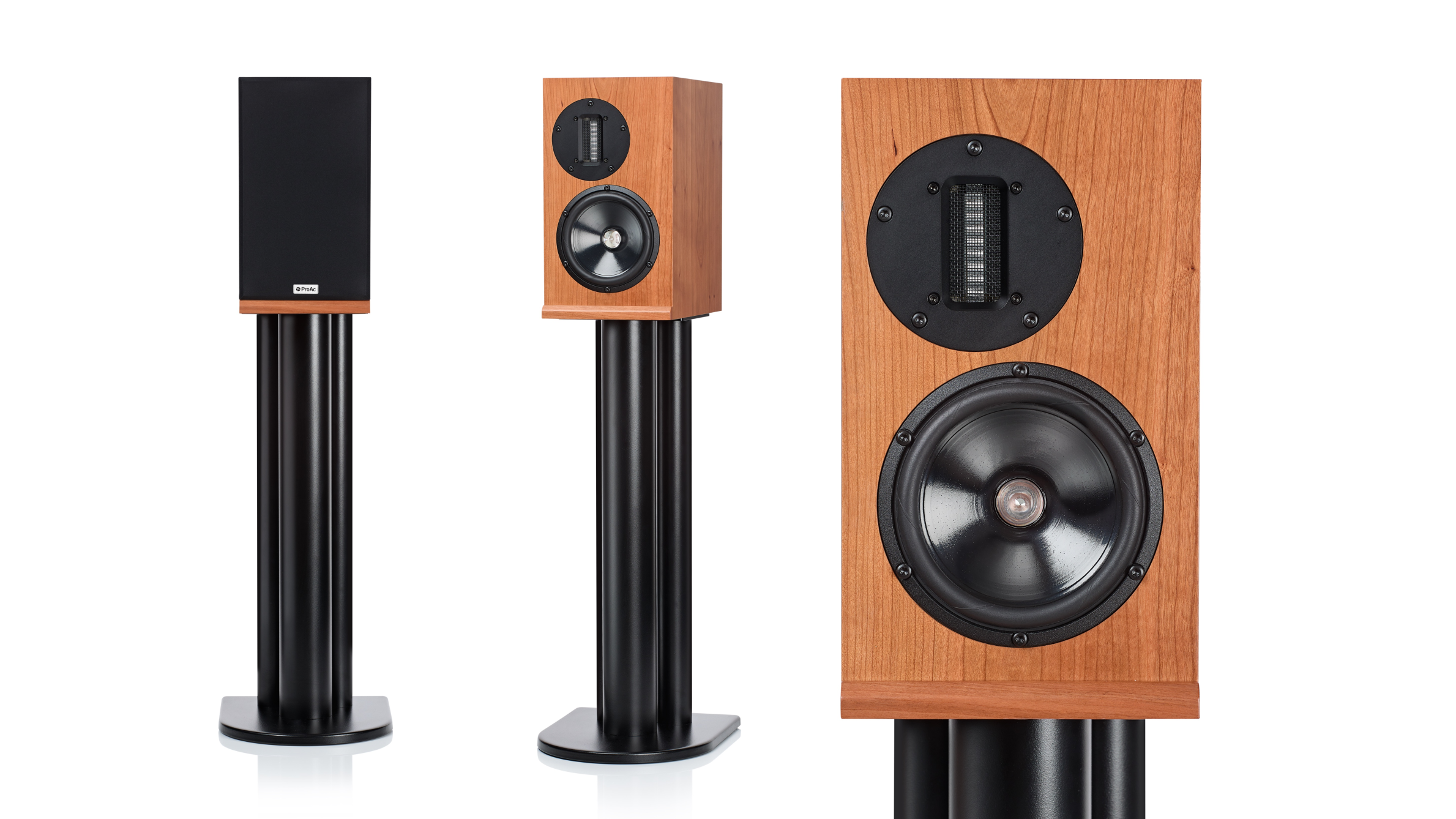What Hi-Fi? Verdict
The Epson EF-72 gives a solid performance with a warm and detailed picture, but it’s up against stiff competition
Pros
- +
Warm, cinematic and balanced picture
- +
Luxurious-looking design
- +
Clear dialogue
Cons
- -
Rivals go brighter and darker
- -
Audio lacks dynamic range
- -
No BBC iPlayer – at least not yet
Why you can trust What Hi-Fi?
More and more coffee table projectors have come onto the home cinema market in the last few years. Though they are proving increasingly popular, the category has a tough balance to strike.
A coffee table projector must be flexible enough in its abilities to adapt to different viewing conditions, small and light enough to be moved between rooms and packed away when not needed, and sonically capable enough to deliver at least relatively cinematic audio – all while keeping the price as accessible as possible.
Inevitably, no model will tick absolutely every box – it’s all about picking the right combination of compromises to deliver the most satisfying overall experience.
The latest model to attempt this is the Epson EF-72, which is part of the brand’s new Lifestudio Flex series.
Epson says the projector provides “a cost-effective, portable, high brightness and high image quality projection experience for the modern household”.
That certainly sounds promising…
Price
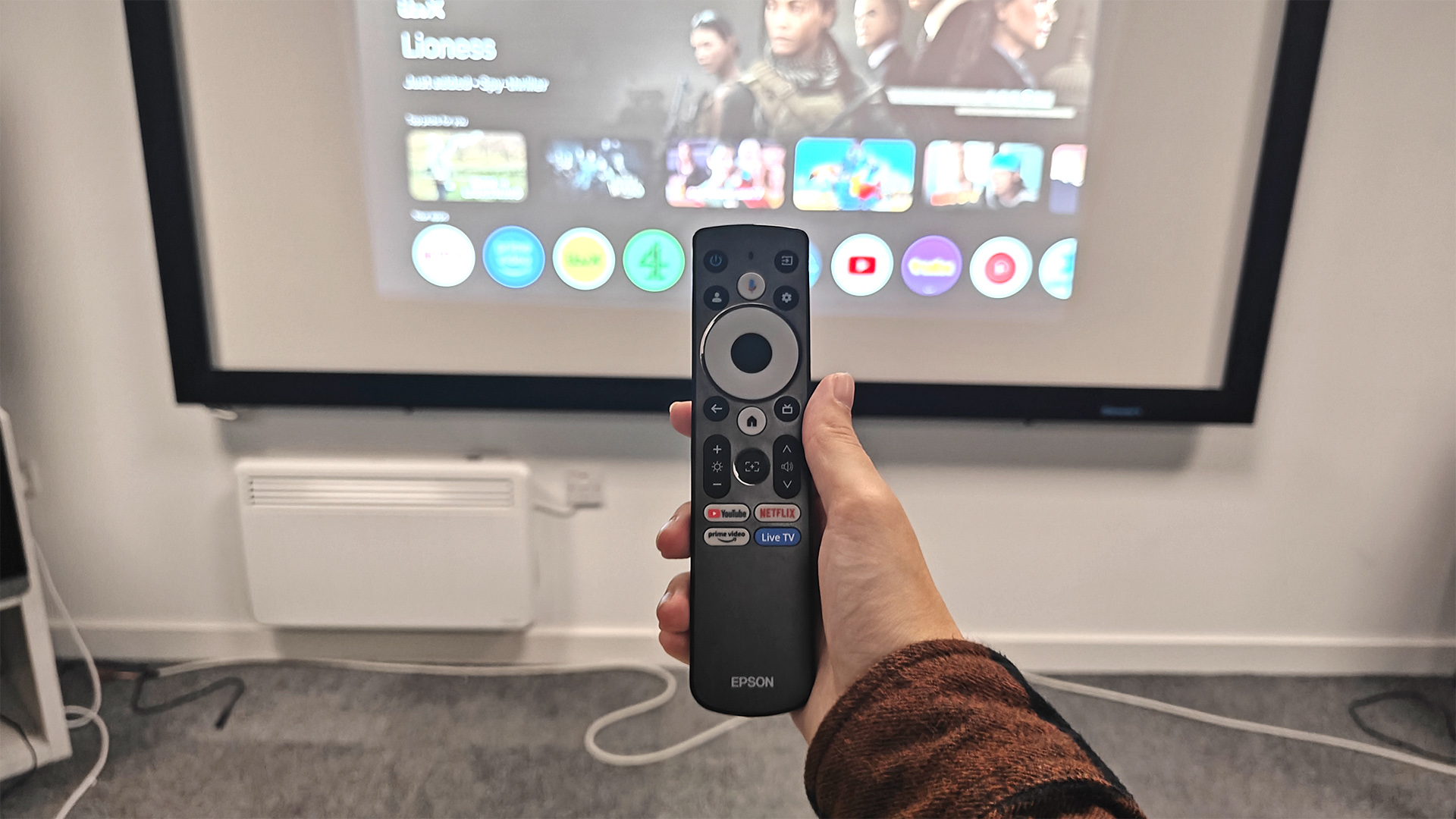
Launching at £1150 in the UK and $1000 in the US, the EF-72 is up against some tough competition. That’s about AU$2845 in Australia, but is not currently available in this region.
The latest hi-fi, home cinema and tech news, reviews, buying advice and deals, direct to your inbox.
Our favourite projector at this level, the BenQ W1800, will set you back a little less, with a price tag of £1099 (around $1379 / AU$1915). This 4K projector has a less stylish design but received a What Hi-Fi? Award last year for its impressively cinematic picture.
Another model to consider is the Hisense M2 Pro, which comes in at £1299 / $1300 / AU$2495. Our full review of this one will be published soon, but we did have it on hand for comparisons with the Epson.
Build
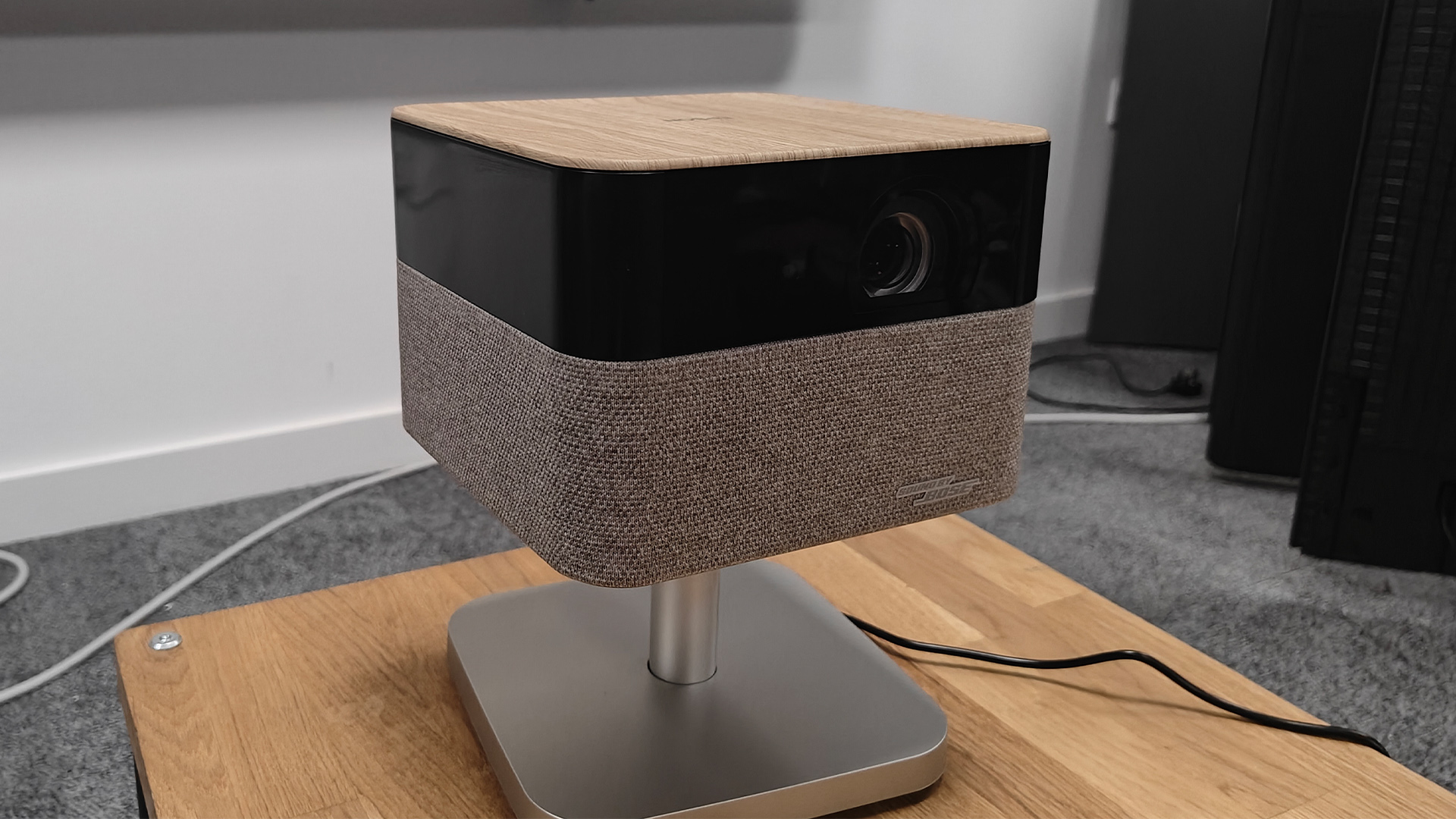
The majority of projectors, coffee table or otherwise, often resemble a rather uninteresting box. But Epson’s lifestyle projector really stands out from the crowd.
The EF-72’s body is supported by a sturdy stand and base.
From the base of the exposed body, you can select a range of different ambient light modes that are ideal if you don’t want to sit in complete darkness while watching.
Users can touch the top of the projector to change the LED light display, and hold to dim or turn it off completely. This is obviously not going to add to its home cinema performance, but it’s a neat feature that adds to its premium feel.
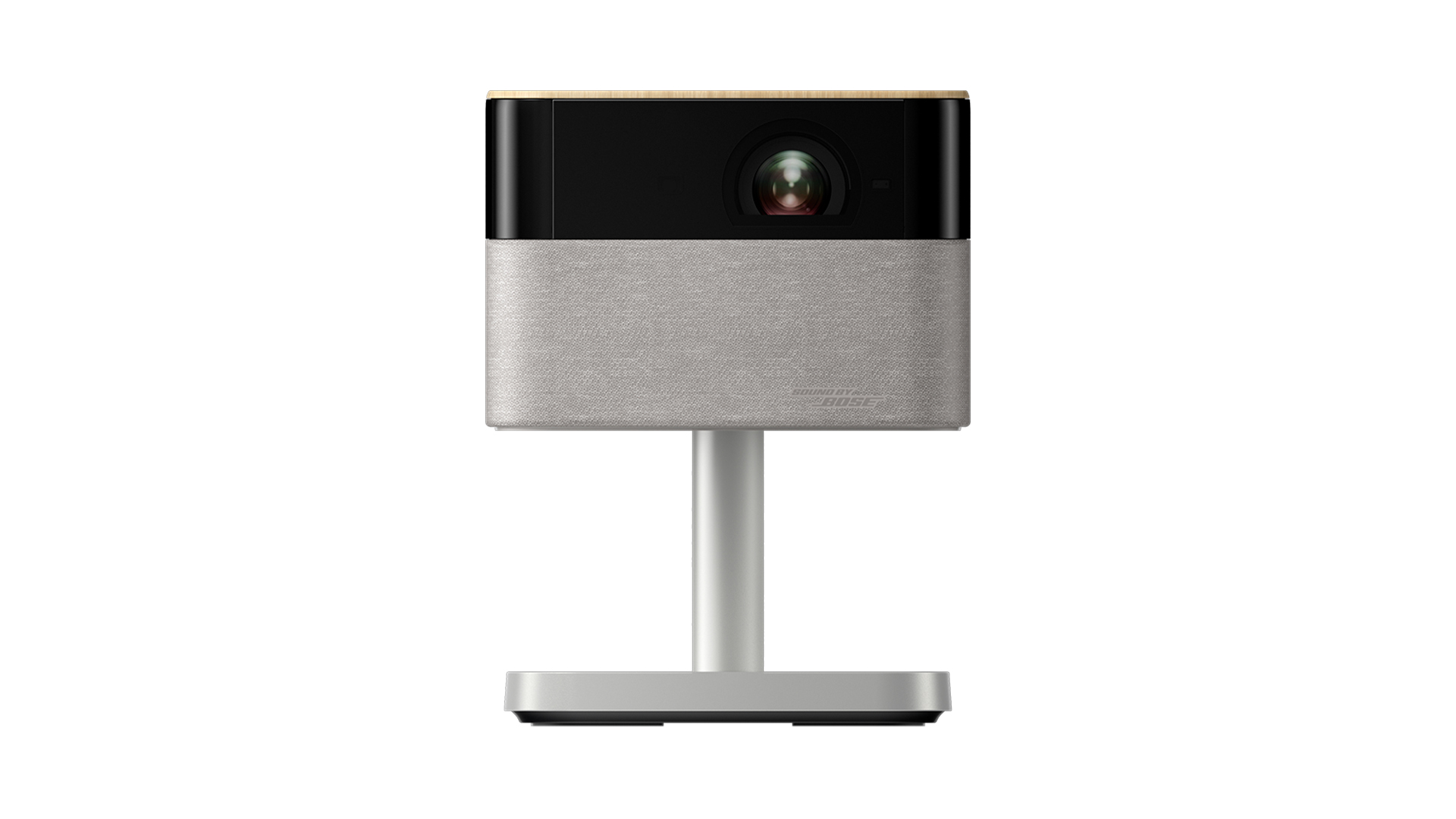
Projector type RGB LED
Screen size Up to 150 inches (claimed)
Resolution 4K (via pixel shifting)
Throw ratio 1.20:1
HDR support HLG, HDR10
Dimensions (hwd) 25 x 19 x 19 cm
Weight 4kg
The EF-72 has a pleasing overall tactility with a smooth wooden top that comes in an oak colour, and there's a fabric covering for the sides. The compact and sturdy design makes it easy to take from room to room, but it’s a stretch to call it a portable model as it does not have a built-in battery.
You can tilt the projector upwards to 90 degrees and downwards by 15 degrees, so you can display content on the ceiling, floor or at an angle with a screen size up to 150 inches.
The throw ratio is 1.20:1, which is fairly common at this level, but there are models available that need less space. In our test room, for example, to fill our 100-inch screen (measured diagonally), we had to set the projector about 107 inches (8.9 feet / 2.7m) back.
Features
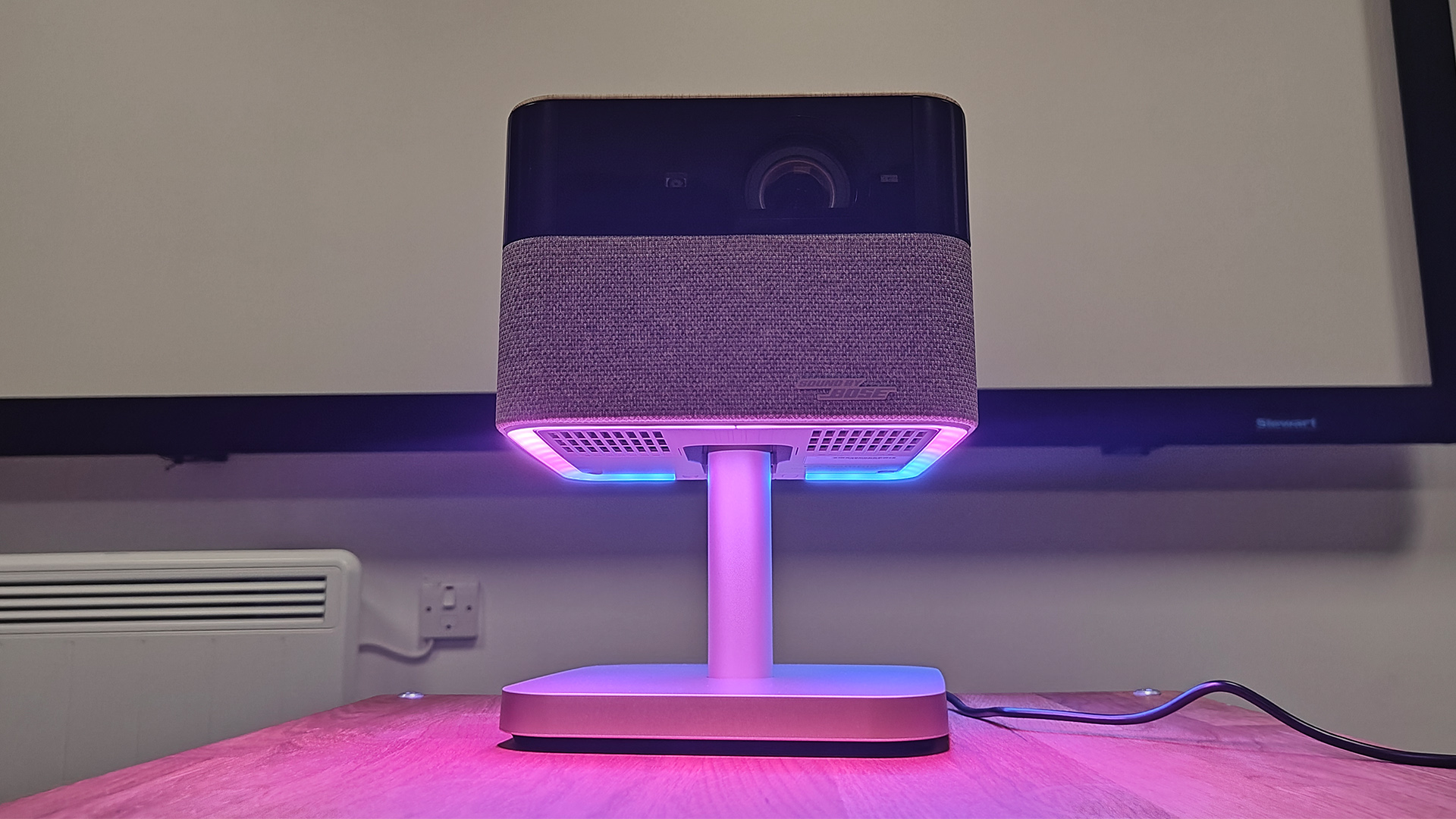
The flexible design makes for a fairly easy set-up, with features such as zoom shift, auto-shape correction and corner adjustment all available.
There’s also wall colour correction if you don’t have the budget for a dedicated projector screen (although we heartily recommend budgeting for one).
The EF-72 uses RGB LED technology, and Epson says it offers up to 1000 lumens of brightness.
Epson describes the EF-72 as a 4K projector, but it’s worth noting that this is achieved through pixel shifting, rather than a native 4K resolution. However, this approach to delivering 4K content has proved effective many times in the past, including recently with the excellent EH-QB1000.
Powered by Google TV, the EF-72 offers most of the usual streaming suspects, including Netflix, Disney Plus, Apple TV+ and Amazon Prime Video.
While Channel 4 is available for UK residents, BBC iPlayer wasn't during testing. Epson says it’s working with the BBC to get it added but, frankly, we’ve heard this sort of thing from several projector manufacturers over the years, and precious few manage to get iPlayer on board. In short, we’ll believe it when we see it.
Note that although you cannot purchase pay-as-you-go movies and TV shows on the Apple TV app, you can still access your Apple TV library, so it’s just a case of making the purchases through another device, such as your phone.
The EF-72 supports HDR10 and HLG, but you won’t be able to watch content in Dolby Vision.
Dolby Atmos sound isn’t supported by the projector’s built-in sound system, either, though it can be passed out to a compatible sound system via the HDMI eARC port.
The only other physical connection is a USB-C socket, but you can also send tunes to the Epson via Bluetooth (more on that later).
Picture

We find that the default Standard preset setting doesn’t provide us with the most cinematic image, as the picture has an artificially vivid quality.
Switching to either Cinema or Natural, however, offers a much warmer and more immersive image.
There are a lot of further adjustments you can make in the picture settings, which will be a bit overwhelming for casual viewers, particularly as they are not typically labelled with much of a description. Still, the level of adjustment available will appeal to some of the more serious cinephiles out there.
We kick off our serious testing with Dune: Part Two on 4K Blu-ray, and the Epson EF-72 proves itself to be a detailed and cinematic performer.
As Zendaya’s Chani looks out onto the sun-bathed desert, the projector does a good job of capturing the warmth of the scene while still keeping her skin tone natural right down to her subtle freckles.
Moving to Kingdom Of The Planet Of The Apes on Disney+, we find that the Epson EF-72 handles motion well, striking a good balance between smoothing the worst judder and not adding an unnatural effect to the movement.
The swooping aerial shot of a golden eagle finding its way back to its nest, for example, maintains a consistently smooth delivery while still keeping the more natural movement of the camera. There is the option to adjust the frame interpolation as well, so you can fine-tune this to your liking.
The colours with this disc look pleasingly punchy and warm, while still being nicely balanced. Flaming torches held by the apes look fierce and vivid against the dark background, and the green of the leaves in the forest later on appears earthy and natural.
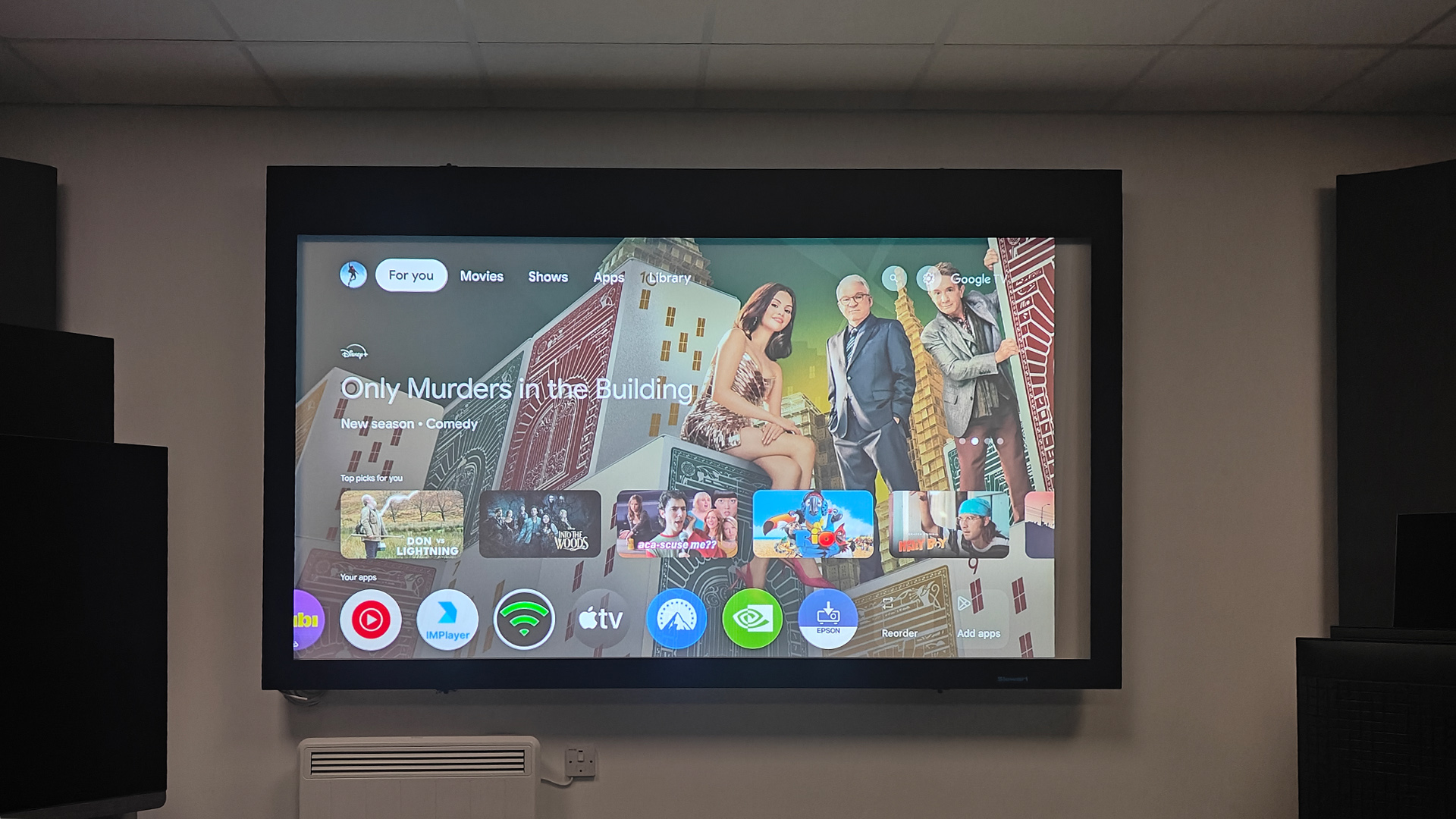
Broadly speaking, the Epson offers a distraction-free performance, although we did spot one instance during testing when the contrast changed unexpectedly, which was rather jarring.
We only experienced this once during many days of testing, but if you encounter it more frequently, turning off the Adaptive Luma Control in the advanced settings solves the issue – though this does darken the image slightly, so it should be avoided if possible.
The Epson EF-72 has a few other shortcomings, too. The projector falls short in portraying the deepest blacks and the brightest highlights. It rather feels as if Epson has decided to play things a bit safe, trading strong contrast for balance and consistency. That's fine in some ways, but there are rivals that offer both.
Despite not delivering the deepest blacks, shadow detail is also somewhat lacking. For example, when watching No Time To Die on 4K Blu-ray, the EF-72 struggles to define Bond’s dark tie against his slightly darker shirt, and said shirt’s creases are all but invisible.
We compare the Epson with the Hisense M2 Pro, and the difference in performance when it comes to brightness and shadow detail is obvious, with the Hisense proving an immediate step up. Bond’s tie, for example, is much more visible between the dark shadows.
Still, while the EF-72 is somewhat less dynamic than the best in class, its picture is easy to live with thanks to its balanced, warm, and generally cinematic delivery.
Sound
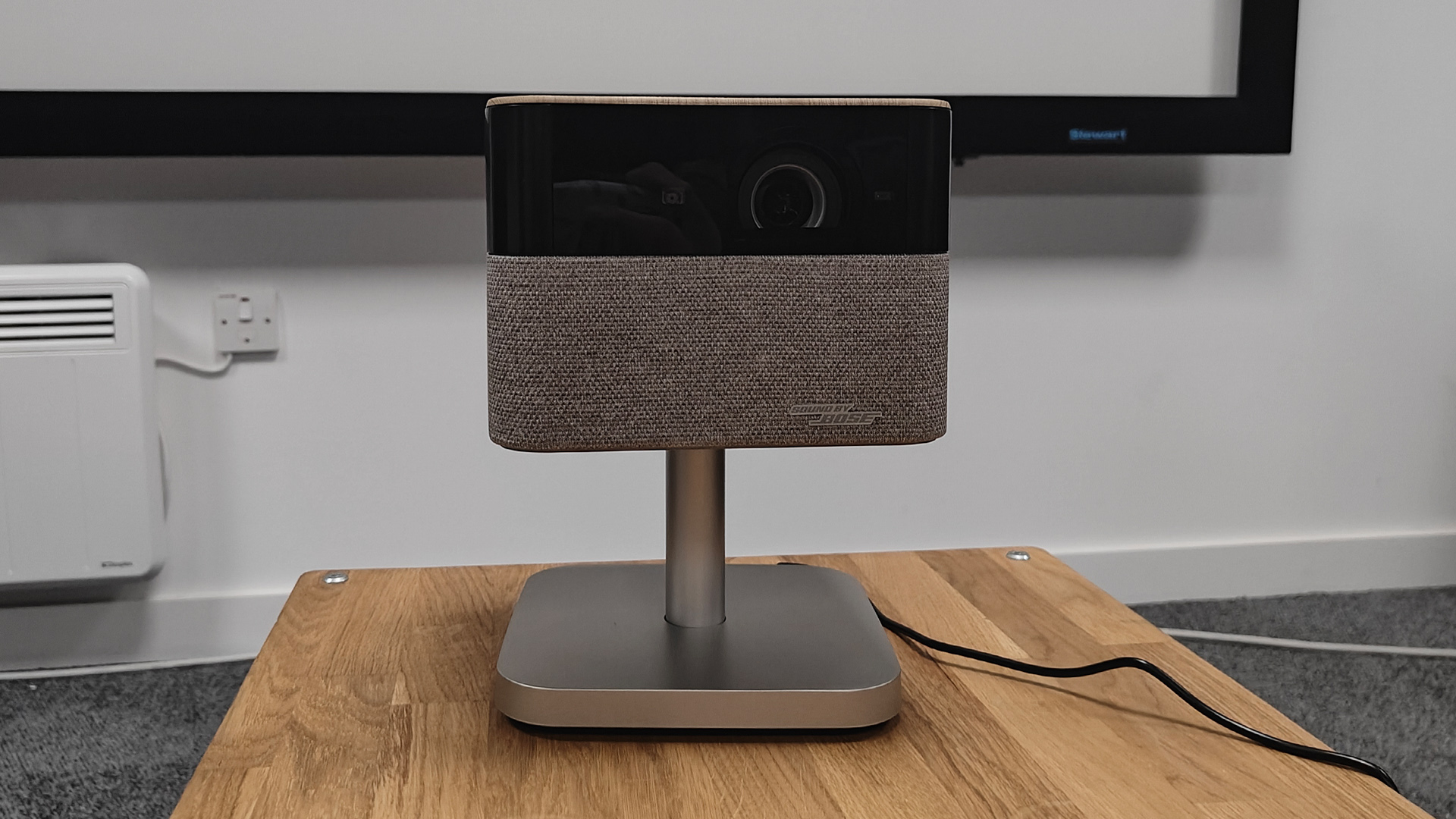
Epson has worked with Bose on the EF-72’s audio, but there’s only a 10W sound system built into the projector’s stylish case.
Again, we get the feeling that Epson has played things rather safe: the sound is inoffensive, but it’s also rather flat and uninteresting.
After testing all of the audio presets, we opt for the Cinema setting, which provides the widest and most cinematic soundstage of all the options.
With Dune: Part Two, as Timothee Chalamet’s Paul Atreides and Stilgar (played by Javier Bardem) have a heart-to-heart in the desert, the projector makes their voices sound natural and tonally balanced, with a reasonable amount of bass to portray the emotion of the scene.
We then put the projector through its paces with the infamously deep Chapter 2 of Blade Runner 2049 on 4K Blu-ray. While the Epson EF-72 does not distort here as many sound systems do, it’s quiet and lacking the dynamic range required to deliver the scene’s tension.
Perhaps unsurprisingly, that single, low-powered speaker struggles to push the sound far out from the body of the projector, resulting in a rather localised delivery that’s fairly detached from the on-screen action.
Epson also encourages you to use the projector as a dedicated Bluetooth speaker, so we send it some tunes to test this out. With both Lord Huron’s The Night We Met and Euro-Country by CMAT, the vocals are clear until the tracks get more complicated and the voices get somewhat lost in the mix.
Again, the delivery is inoffensive, but even a budget Bluetooth speaker will do a better job with your music. For movies, we strongly recommend pairing the Epson with a soundbar, even though that will mean putting up with some unsightly cabling.
Verdict
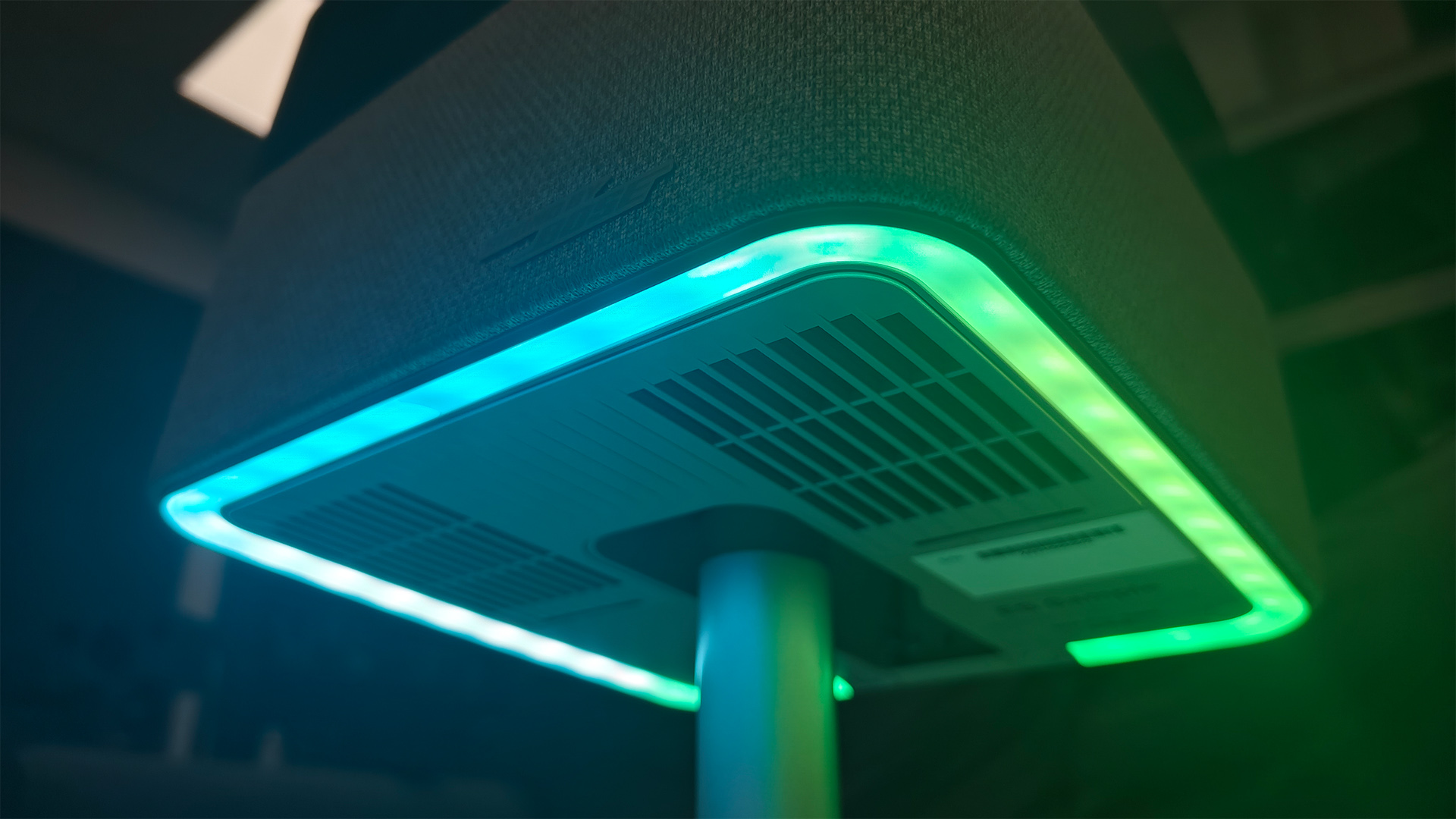
Overall, Epson’s EF-72 offers a rich and cinematic picture that is very easy to live with. Its warm colours and natural motion processing are sure to please, and the ability to fine-tune the settings will appeal to serious cinephiles.
That said, we find that no amount of tweaking and tinkering results in the dynamism that we have come to expect at this level, and the sound is far too small-scale for images this large.
A decent option in the land of coffee table projectors, then – but not the best…
SCORES
- Picture 4
- Sound 3
- Features 4
MORE:
Read our review of the BenQ W1800
Also consider the Epson EH-TW7100
Best projectors: budget, 4K and ultra-short-throw
Robyn Quick is a Staff Writer for What Hi Fi?. After graduating from Cardiff University with a postgraduate degree in magazine journalism, they have worked for a variety of film and culture publications. In their spare time, Robyn can be found playing board games too competitively, going on cinema trips and learning muay thai.
- Tom Parsons
- Lewis EmpsonSenior Staff Writer
You must confirm your public display name before commenting
Please logout and then login again, you will then be prompted to enter your display name.
